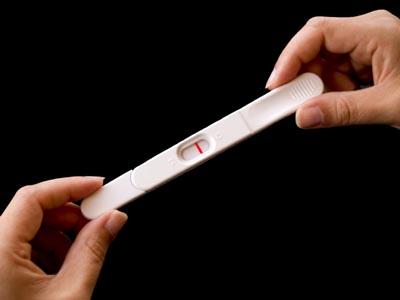Jaw Hurting After Dental Work

Experiencing jaw pain after dental work can be a concerning and uncomfortable phenomenon. It’s essential to understand that this discomfort is often a temporary and normal part of the healing process. However, in some cases, it may indicate a need for further evaluation or adjustment by your dental professional.
To address jaw hurting after dental work comprehensively, let’s delve into the possible causes, symptoms, and most importantly, the solutions or remedies that can help alleviate this discomfort.
Understanding the Causes
Jaw pain following dental procedures can stem from various sources. One of the most common causes is the manipulation of the jaw during the procedure, which can lead to strain on the temporomandibular joint (TMJ) and the surrounding muscles. This is particularly true for procedures that require the mouth to be open for an extended period, such as root canals, wisdom teeth extractions, or dental implant placements.
Another significant factor could be the dental work itself, especially if it involves altering the bite or the way the upper and lower teeth come into contact. This adjustment period can sometimes lead to discomfort or pain in the jaw as the body adapts to the new configuration.
Furthermore, anxiety or stress related to the dental visit can also exacerbate jaw pain. Clenching or grinding teeth, often a subconscious response to stress, can put additional strain on the jaw muscles, leading to pain.
Identifying the Symptoms
The symptoms of jaw pain post-dental work can vary but typically include:
- Pain or tenderness in the jaw, face, or temples.
- Difficulty or discomfort when chewing, speaking, or yawning.
- Clicking or popping sounds when opening or closing the mouth, which can indicate TMJ issues.
- Limited range of motion in the jaw, making it hard to open the mouth wide.
Finding Relief and Solutions
Fortunately, there are several steps you can take and remedies you can try to alleviate jaw pain after dental work:
Apply Heat or Cold: Applying a warm or cold compress to the affected area can help relax the muscles and reduce pain. Some people find relief with heat, while others prefer cold; you can try both to see what works best for you.
Over-the-Counter Pain Relievers: Medications like ibuprofen or acetaminophen can be effective in managing pain and inflammation. However, always follow the recommended dosage and consult your dentist or physician before taking any medication.
Soft Diet: Eating soft foods for a few days can reduce the strain on your jaw. Avoid chewing gum or eating hard, crunchy, or sticky foods that can exacerbate the discomfort.
Relaxation Techniques: Stress can exacerbate jaw pain. Engaging in relaxation techniques such as meditation, deep breathing, or yoga can help manage stress and thereby reduce jaw tension.
TMJ Exercises: Gentle exercises that help stretch and strengthen the jaw muscles can be beneficial. However, it’s crucial to consult with your dentist or a healthcare professional before starting any new exercises to ensure they are appropriate for your specific condition.
Professional Evaluation: If your jaw pain persists or worsens, it’s essential to visit your dentist for an evaluation. They can assess whether the pain is related to the dental work or if there’s an underlying issue that needs attention. Adjustments to dental work, recommendation of a mouth guard to prevent teeth grinding, or referral to a specialist may be necessary.
Preventive Measures
While some level of discomfort may be unavoidable, there are preventive measures you can take to minimize the risk of jaw pain after dental work:
- Maintain Good Oral Hygiene: Regular dental check-ups can help identify and address potential issues before they become severe.
- Manage Stress: Finding healthy ways to cope with stress, such as through exercise, mindfulness, or talking to a professional, can reduce the likelihood of clenching or grinding your teeth.
- Avoid Hard or Sticky Foods: Immediately after dental work, sticking to a soft food diet can help prevent putting unnecessary strain on your jaw.
Conclusion
Jaw pain after dental work, while concerning, is often manageable with the right approach. Understanding the potential causes, recognizing the symptoms, and applying appropriate remedies can significantly alleviate discomfort. If the pain persists or is severe, seeking professional advice is crucial to prevent long-term issues and ensure optimal oral health. Remember, your dentist is there to help you not just with the procedure but also with the recovery process, so don’t hesitate to reach out if you’re experiencing jaw pain after dental work.
How long does jaw pain typically last after dental work?
+Jaw pain after dental work can last anywhere from a few days to several weeks, depending on the procedure and individual healing process. Mild discomfort is common and usually resolves on its own within a short period. However, if the pain is severe or persists, it’s important to consult with your dentist.
Can jaw pain after dental work be a sign of something more serious?
+Yes, in some cases, jaw pain after dental work can indicate a more serious issue, such as infection, nerve damage, or a problem with the dental work itself. It’s crucial to follow up with your dentist if you experience severe pain, swelling, or if the pain does not improve with time.
How can I prevent jaw pain after dental work?
+Preventing jaw pain after dental work involves a combination of pre- and post-procedure care. Before the procedure, managing stress and anxiety can help reduce the risk of clenching or grinding teeth. After the procedure, following your dentist’s instructions carefully, eating a soft diet, and applying heat or cold packs can help minimize discomfort.


